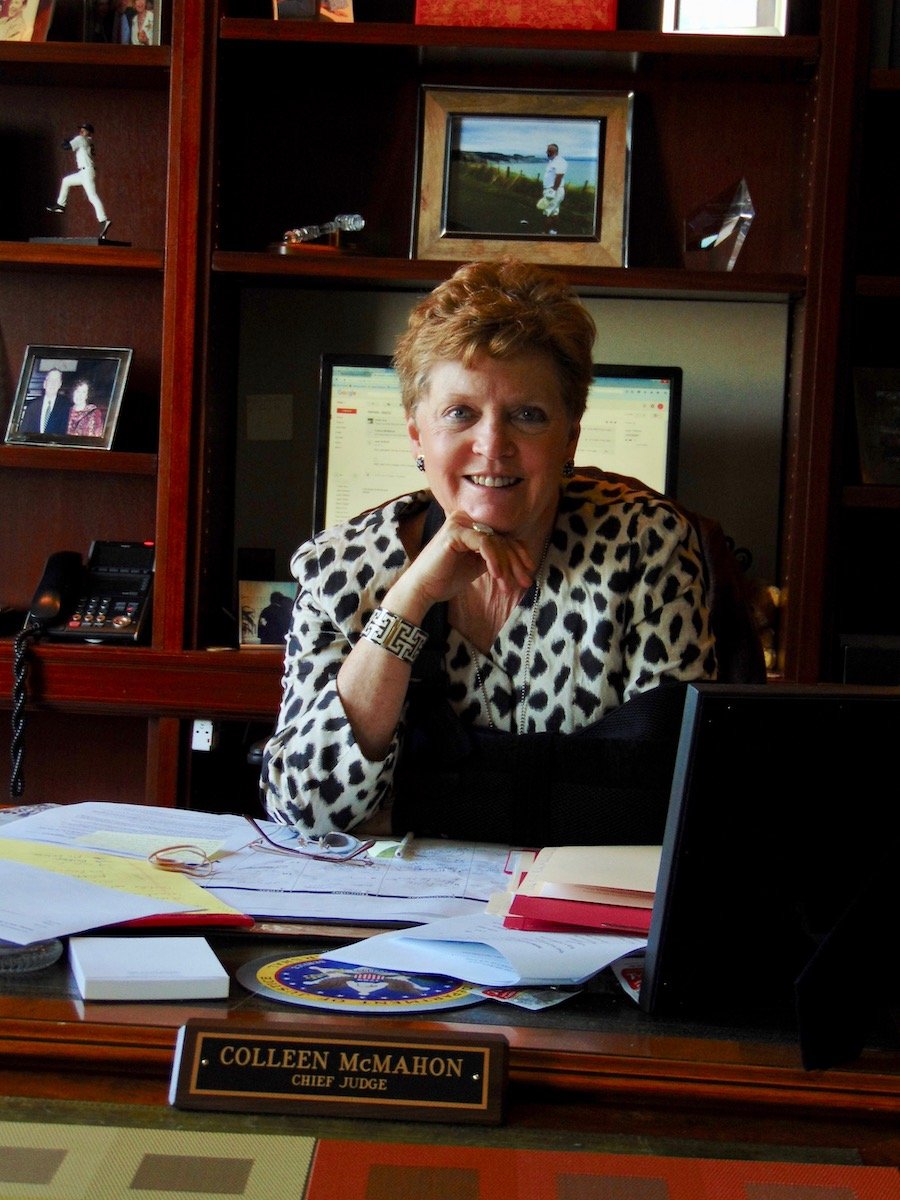MANHATTAN (CN) — Even as the Southern District of New York suspends a new jury trial starting next week, Chief U.S. District Judge Colleen McMahon aims to keep the court services going as much as possible during the novel coronavirus outbreak.
“We’re the government,” McMahon said in an interview inside her 25th story chambers. “We’re the courts. We have an obligation to be here for the people, and so, all of our planning is geared around how we can continue to provide the essential service that we provide.”
Long signaling independence in its nickname, the Southern, or Sovereign, District of New York has emerged as a nationwide leader among federal courts responding to the virus.
“There's nothing being coordinated out of Washington, D.C.,” McMahon said, just hours after the World Health Organization affixed pandemic status to COVID-19, the new strain of coronavirus that has at least 125,048 confirmed cases globally Friday morning, killing 4,613 so far.
“The administrative office has advised courts to react based on local conditions,” McMahon continued. “So, there are 94 judicial districts. It's been kind of every court for itself.”
Detailing her four-tiered plan, Judge McMahon explained that her district already has taken measures that others are implementing, like restricting courthouse entry to those who recently visited countries with surging cases of COVID-19, the coronavirus strain labeled a global pandemic this week by the World Health Organization.
“We know that we've done stuff that is now being copied nationwide,” McMahon said.
Ranging from the disseminating information to closing the court to all but the most senior personnel, the Southern District reached the second level of its plan Monday, denying courthouse entry to visitors returning within the past 14 days from five countries known to be hotspots for the pandemic: China, South Korea, Japan, Italy and Iran. Court security officers have been instructed to deny entry to anyone diagnosed with the virus, people asked by health authorities to self-quarantine, and those who have been in contact with someone from any of these categories. At every entrance of the courthouses, large signs warn the public of these prohibitions, and the jury clerk calls potential jurors at the beginning of every week.
“We'll reschedule you, OK?” McMahon said, describing what the clerk tells the jurors. “Just don't come.”
Across the river in Brooklyn, the Eastern District of New York’s restrictions on courthouse access are nearly identical to those of its Manhattan neighbor.
In Ohio, the Cincinnati-based Sixth Circuit U.S. Court of Appeals has a list of four countries, leaving Japan — which at 639 confirmed cases has roughly half as many people there with the coronavirus — off the list.
The Ninth Circuit, whose jurisdiction includes the hardest-hit state of Washington, canceled all en banc hearings, avoiding hearings that would put their entire appellate bench within close proximity of one another.
When they were located in the U.S. epicenter of the outbreak, the Seattle-based Western District of Washington suspended jury trials.
McMahon has a plan in place for such a crossroads.
“Level 3 would be if we had to close the courthouse, and it turned out to be Level 2 1/2 and then Level 3,” the judge said. “We half-closed the courthouse to almost every member of the public, and we're inching into that.”









